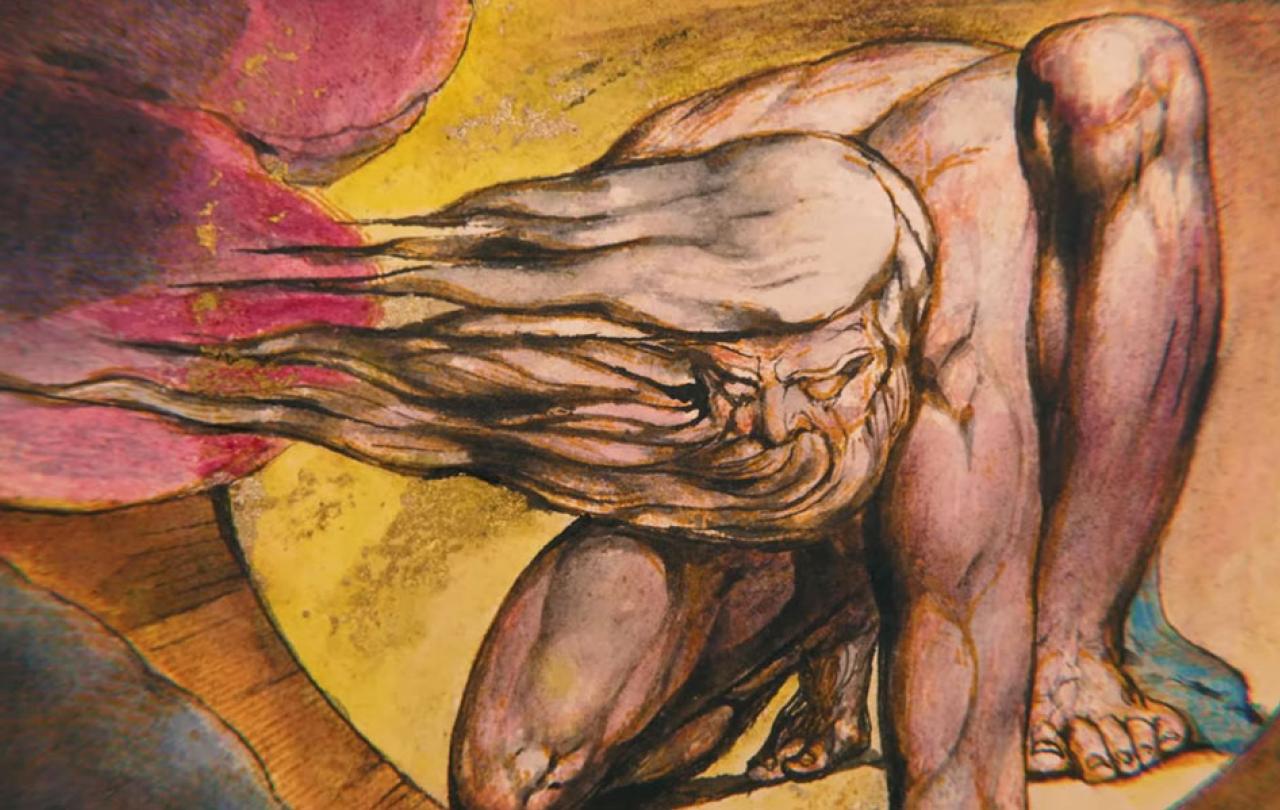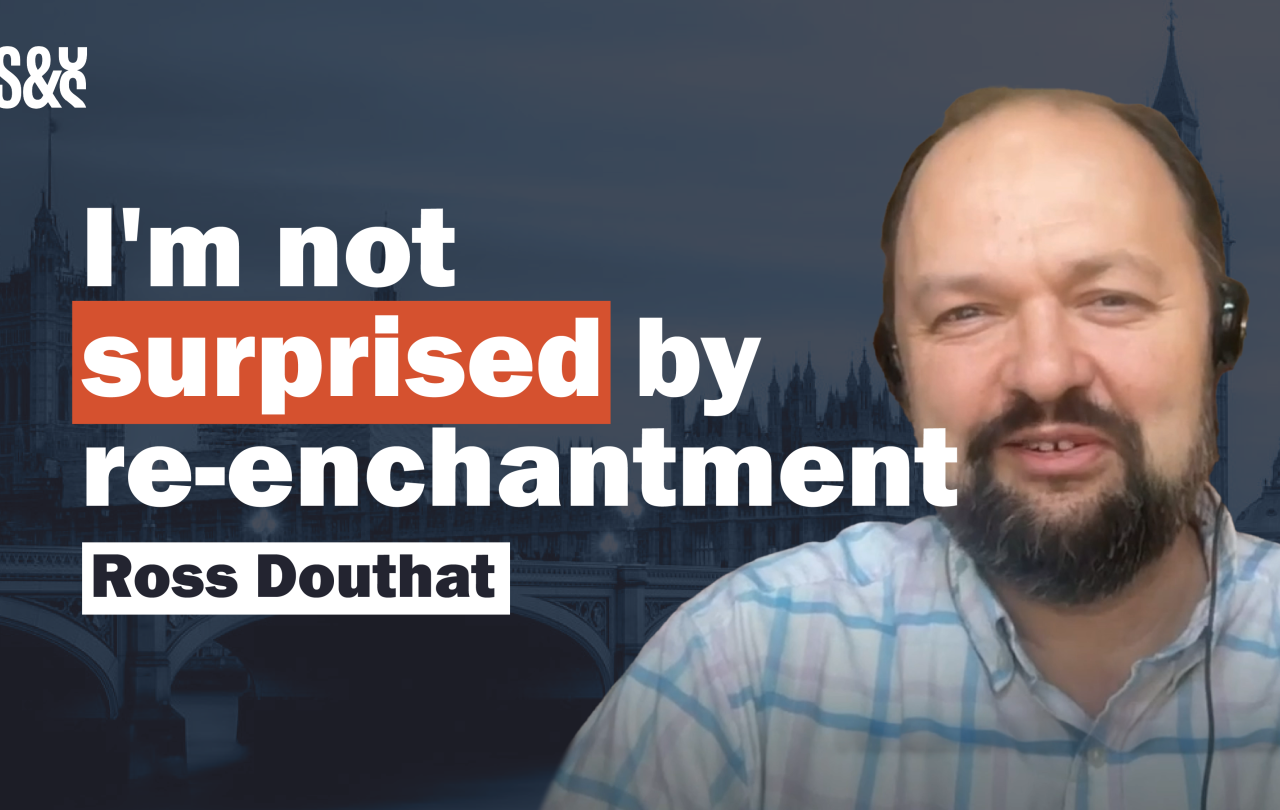
The exhibition William Blake’s Universe at the Fitzwilliam Museum, Cambridge, enables visitors to discover a constellation of European Romantic artists who sought spirituality in their lives and art in response to war, revolution and political turbulence.
The exhibition brings together the largest-ever display of works by the radical British artist, printmaker and poet from the Fitzwilliam Museum's collection, alongside artworks by Blake's European contemporaries such as the German romantic painters Philipp Otto Runge and Caspar David Friedrich – many of which have never been displayed publicly in the UK until now. Though they never met or connected in their lifetimes, Blake, Runge and Friedrich shared an unwavering belief in the power of art to redeem a society in crisis.
Blake believed it ‘is only the imagination’, the faculty we have neglected, which can lead us out of our self-imposed prison.
The exhibition also places Blake within his artistic network in Britain, drawing parallels with the work of his peers, mentors and followers including Henry Fuseli, John Flaxman, and Samuel Palmer. In the exhibition catalogue Esther Chadwick draws attention to a little-known series of paintings in which ‘Blake is shown partaking in an immense community of like-minded intellectuals of the European Romantic generation.’ These include writers and poets associated with Runge, as well as artists and poets such as Flaxman, William Wordsworth and Samuel Taylor Coleridge. Flaxman introduced Charles Augustus Tulk, a well-known Swedenborgian, to Blake, to whom Tulk later introduced Coleridge saying ‘Blake and Coleridge, when in company seemed like congenial beings from another sphere breathing for a while on our earth’.
Exhibition curators David Bindman and Chadwick have said: “This is the first exhibition to show William Blake not as an isolated figure but as part of European-wide attempts to find a new spirituality in face of the revolutions and wars of his time. We are excited to be able to shed new light on Blake by placing his works in dialogue with wider trends and themes in European art of the Romantic period, including transformations of classical tradition, fascination with Christian mysticism, belief in the coming apocalypse, spiritual regeneration and national revival.”
Independently of each other, Blake and Runge were inspired by the writings of German mystic Jacob Böhme, who, as Bindman and Chadwick explain, ‘believed that all being arises from the dynamic interplay of opposites: between darkness and light, life and death, hot and cold, male and female’. As a result, he viewed our spiritual quest as ‘the reconciliation of differences to produce spiritual and philosophical regeneration’. Bryan Aubrey has also shown that Böhme believed human beings can share in the divine imagination, through which we act ‘with, and on behalf of, the creator’. Böhme ‘equated the strong imagination with the faith that moves mountains’ while Blake believed it ‘is only the imagination’, the faculty we have neglected, which can lead us out of our self-imposed prison. Blake was, as a result, indebted to Böhme for his concept of the imagination and his doctrine of contraries.
This exhibition demonstrates that many of great Romantic philosophers and writers were seeking just such a spiritual regeneration and national revival.
Melanie Öhlenbach has argued that ‘Runge's life, his theory and works bear testimony to Böhme's importance’. For Runge, art ‘is considered as the revelation of God and the artist as its tool, while the artist's imagination creates the insight of God’. He believed it is ‘the artists' duty to re-create the diverging harmony of man and cosmos in the sense of an artistic-spiritual revolution’. She writes that due to his early death, ‘Runge managed only partly to put his ambitions into practice’, notably in his Times of Day series which represent not only the changing times of day, but the seasons, the ages of humanity and historical epochs. Similarly, Friedrich’s seven sepia drawings The Ages of Man are thought to be inspired by Runge’s interest in visual representations of time, meaning that this exquisitely delicate series is associated with the themes of change in nature, the cyclical representation of time and the temporality of human life.
The significance of these artists is, in part, as prophets within the Christian tradition. Lucy Winkett has noted that ‘Blake’s faith was in the Jesus whom he believed the Church had abandoned’. As a result, ‘he was — and still is — an internal rather than external critic of the way in which the Christian faith is practised by its adherents; and so, for those who have ears to hear, his is a prophetic rather than destructive force within the Christian tradition’. Richard A. Rosengarten states that ‘Blake wanted to stir things up because he thought the Christian revelation was meant to stir things up’. He argues that, for Blake, the ‘first step in doing so (after reading the Bible from stem to stern) was to liberate Imagination from the shackles of Reason’. This is what ‘could make us fully human again, and thus much more approximately the creatures of God that we truly are’.
Malcolm Guite suggests that both Blake and Coleridge: ‘recognised Jesus as the Divine Imagination and Love bodied forth for us and kindling afresh in us the love and imagination which is God’s lost image deep in our souls. Both men were calling for England (‘Albion’ in Blakes terms) to awaken from the sleep of materialism, greed and conquest, and to be renewed in Christ through an awakening of the spiritual imagination.’
This exhibition demonstrates that many of great Romantic philosophers and writers were seeking just such a spiritual regeneration and national revival. In our own time of war, revolution and political turbulence, it may be that this is a prescient exhibition bringing us artists who, as Winkett said of Blake, have ‘a distinctively Christian voice for our time’.
In Jerusalem, one of Blake’s illuminated books from which many plates are shown in this exhibition, Blake writes: ‘I know of no other Christianity and of no other Gospel than the liberty both of body and mind to exercise the Divine Arts of Imagination – Imagination, the real & eternal World of which this Vegetable Universe is but a faint shadow, & in which we shall live in our Eternal or Imaginative Bodies when these Vegetable Mortal Bodies are no more.’
William Blake’s Universe, 23 February 2024 - 19 May 2024, Fitzwilliam Museum.





